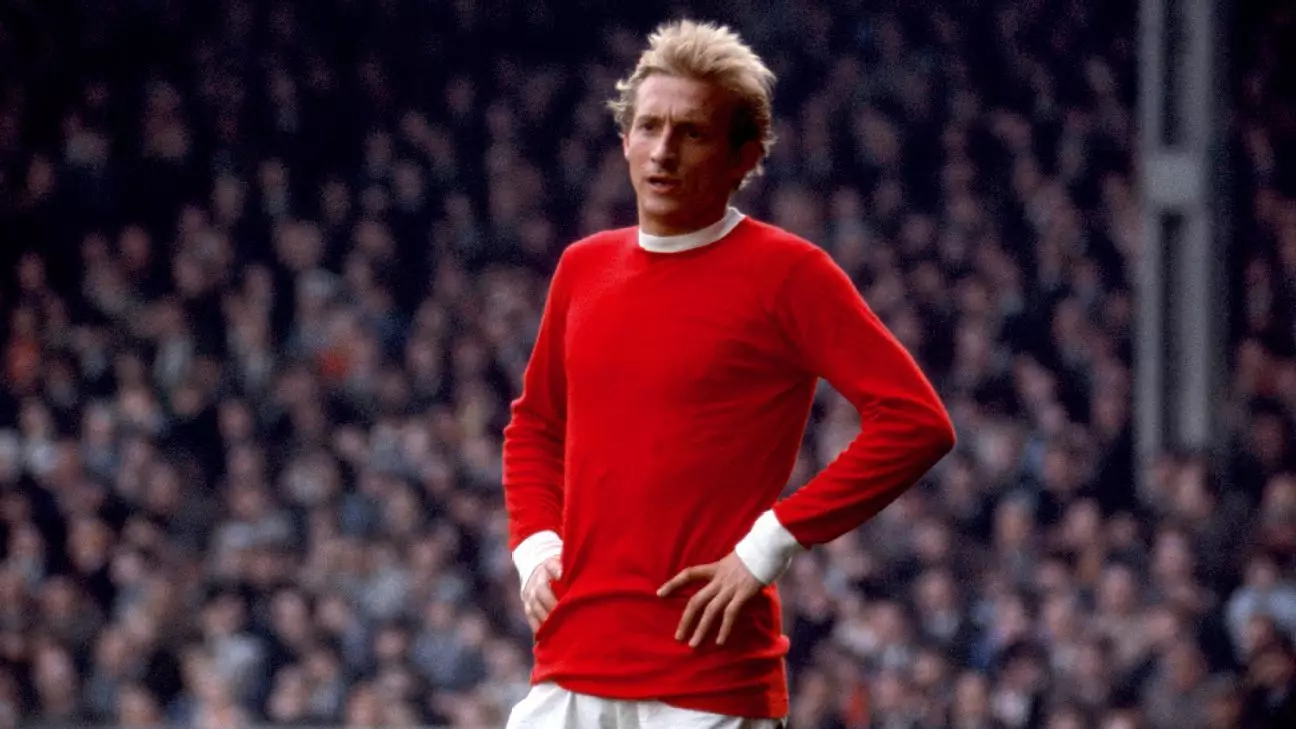The football community has been left in mourning following the passing of Denis Law, a legendary figure in Manchester United’s storied history. At the age of 84, Law’s family confirmed his death in a heartfelt statement that highlighted not only his lasting impact on the game but also the personal struggles he faced in his later years, including a battle with dementia. His demise signifies not only a loss for his family and friends but also for fans and stakeholders who cherished the memories of his remarkable career.
Law was part of the iconic “United Trinity,” alongside Sir Bobby Charlton and George Best. This trio is forever immortalized in a statue that stands tall outside Old Trafford, a testament to their contributions to one of the world’s most celebrated clubs. United’s failure to disclose the precise cause of Law’s death has left many fans wishing to know more about the circumstances surrounding the loss of such a treasured icon.
Denis Law’s career is punctuated by extraordinary achievements. With 54 international caps for Scotland, Law not only showcased his scoring prowess with 31 goals but also embodied the spirit and fortitude required to compete at the highest levels of football. His journey began at Huddersfield Town and included spells with Manchester City and Torino, yet it was at Manchester United where he truly made his mark. From 1962 to 1973, he made 404 appearances and scored an astonishing 237 goals, placing him among the pantheon of the club’s greatest players.
Under the guidance of Sir Matt Busby, Law’s contributions became crucial for a club that was still healing from the 1958 Munich air disaster, which claimed the lives of many of Busby’s prominent players. Law’s prolific goal-scoring ability was instrumental in the club’s resurgence, propelling them to back-to-back league titles in 1965 and 1967, as well as their historic European Cup victory in 1968—an achievement that would etch his name in football history.
In 1964, Law became just the second British player to win the prestigious Ballon d’Or award. This accolade further solidified his status as not only a remarkable player but also a symbol of British footballing excellence. Manchester United’s official statement upon his passing reflected the enormity of his legacy, declaring him “the King of the Stretford End” and praising his innate goal-scoring talent and passionate spirit.
While many of Law’s achievements sparkle brightly in the annals of football, one of the most memorable moments took place at Old Trafford in 1974. In what would be one of his last appearances, Law, playing for rivals Manchester City, scored a late goal that ultimately helped relegate United from the top tier of English football. This infamous back-heel flick, which Law later described as a fluke, was emblematic of the bitter-sweet nature of football—where joy for one side may mean heartbreak for another. His dignified refusal to celebrate this decisive goal as he left the field serves as a poignant reminder of his deep affection for Manchester United.
After retiring from active football in August 1974, Law seamlessly transitioned to various roles, including a television pundit and presenter. His contributions to football extended beyond mere statistics; he became a voice in the sport, offering insights that enriched the experiences of fans worldwide. His resilience in battling prostate cancer, which he overcame in 2003, showcased his tenacity both on and off the field. In 2016, he was honored as a Commander of the British Empire, reflecting his significant contributions to football and charity.
Denis Law’s story is not just one of remarkable athletic prowess; it is also a narrative interwoven with personal struggles, triumphs, and a deep sense of loyalty to the sport that defined his life. His passing marks the end of an era, but his legacy will continue to inspire future generations of players and fans alike. As we reflect on his contributions, we celebrate not just the football icon but the man who dared to dream and shone brightly in the beautiful game.
